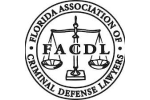to Save Yours
DUI Manslaughter
Not all charges are created equal. What would normally be a routine driving under the influence arrest amounting to a misdemeanor charge will get very serious, very quickly if there is an accident resulting in the death of another. Florida Statute 316.193(3) states that anyone who is driving or in actual physical control of a vehicle while under the influence of alcoholic beverages or certain chemical substances to the extent that the person’s normal faculties are impaired, or if the person has a blood or breath-alcohol level of 0.08 or more, and that person causes the death of a human being or unborn child, commits DUI manslaughter. This is never a crime committed on purpose. Unlike a murder charge, there is no malicious intent, nor is there even a purposeful act. Despite a finger being pointed at you that you caused the death of another after driving under the influence, we can help defend against it. Jason Mayberry knows what experts are necessary to reconstruct the accident scene to show you didn’t cause the death. In Florida, pursuant to statute 316.193 as it was interpreted in Magaw v. State, 537 So.2d 564 (Fla. 1989), the State must prove that your operation of a vehicle caused the accident. With this being the case, our DUI manslaughter lawyers will pinpoint any contributing action of the victim to show that though you may have been impaired, your driving did not cause the death of another.
Generally this charge is considered a second degree felony, punishable by a $10,000 fine and up to 15 years in the Florida Department of Corrections. If the individual fails to give his information at the scene of the crash or fails to render aid, that person will be charged with a first degree felony, punishable by a $10,000 fine and up to 30 years in the Florida Department of Corrections. As a collateral penalty, the Department of Highway Safety and Motor Vehicles will permanently revoke one’s driver’s license if convicted. Though it’s not much consolation, there is a possibility to get a hardship license after 5 years into the revocation period.
From a practical standpoint, defending a this charge involves only one additional criminal element; the death of another. The burden is on the State Attorney to show the defendant caused the death of the victim and that the defendant was intoxicated. To give an example of how this works, consider the charge brought against NFL wide receiver Dante Stallworth. Despite ultimately pleaing to a DUI Manslaughter charge, had this case been tried, Stallworth may have been acquitted because the victim was jaywalking when the accident occurred. This is important, as Stallworth’s attorney could have argued in trial that the victim caused himself to be hit by walking outside the crosswalk. If argued successfully, the element of “causation” would be lacking and Stallworth could not have been convicted.
Considering the magnitude of this type of charge, no stone can be left unturned. Whether it’s a toxicologist to examine impairment caused by alcohol or chemical substances, or an accident reconstructionist to show the accident was not caused by our client, we will stop at nothing to examine every element of your charge while considering every reasonable defense available. At the end of the day, despite the significance of a DUI manslaughter charge, they very often are defensible. There is no driving under the influence charge more serious than one involving a death, and for that reason it is very important to hire an experienced attorney who specializes in DUI to represent your interests. Give us a call at 813-444-7435 to discuss your case before you speak to anyone.














